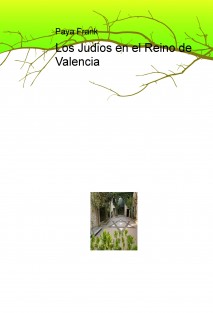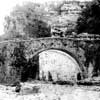
Libro de descarga Gratis
Una mujer en Jerusalén, de Abraham B. Yehoshúa
http://www.bubok.es/libros/7141/Una-mujer-en-Jerusalen

 Paya Frank es un editor y escritor freelance
Ha escrito sobre su experiencia publicando libros mediante impresión bajo demanda en Lulu y Bubok .
También ha escrito artículos para Paperblog en español
y en mi blog, Algunas de mis Publicaciones son gratis.
Mis Publicaciones en
Formato epub y en Papel
Bubok.es
Lulu.com
Amazon.es
Paya Frank es un editor y escritor freelance
Ha escrito sobre su experiencia publicando libros mediante impresión bajo demanda en Lulu y Bubok .
También ha escrito artículos para Paperblog en español
y en mi blog, Algunas de mis Publicaciones son gratis.
Mis Publicaciones en
Formato epub y en Papel
Bubok.es
Lulu.com
Amazon.es

 Paya Frank es un editor y escritor freelance
Ha escrito sobre su experiencia publicando libros mediante impresión bajo demanda en Lulu y Bubok .
También ha escrito artículos para Paperblog en español
y en mi blog, Algunas de mis Publicaciones son gratis.
Mis Publicaciones en
Formato epub y en Papel
Bubok.es
Lulu.com
Amazon.es
Paya Frank es un editor y escritor freelance
Ha escrito sobre su experiencia publicando libros mediante impresión bajo demanda en Lulu y Bubok .
También ha escrito artículos para Paperblog en español
y en mi blog, Algunas de mis Publicaciones son gratis.
Mis Publicaciones en
Formato epub y en Papel
Bubok.es
Lulu.com
Amazon.es

 Paya Frank es un editor y escritor freelance
Ha escrito sobre su experiencia publicando libros mediante impresión bajo demanda en Lulu y Bubok .
También ha escrito artículos para Paperblog en español
y en mi blog, Algunas de mis Publicaciones son gratis.
Mis Publicaciones en
Formato epub y en Papel
Bubok.es
Lulu.com
Amazon.es
Paya Frank es un editor y escritor freelance
Ha escrito sobre su experiencia publicando libros mediante impresión bajo demanda en Lulu y Bubok .
También ha escrito artículos para Paperblog en español
y en mi blog, Algunas de mis Publicaciones son gratis.
Mis Publicaciones en
Formato epub y en Papel
Bubok.es
Lulu.com
Amazon.es

 Paya Frank es un editor y escritor freelance
Ha escrito sobre su experiencia publicando libros mediante impresión bajo demanda en Lulu y Bubok .
También ha escrito artículos para Paperblog en español
y en mi blog, Algunas de mis Publicaciones son gratis.
Mis Publicaciones en
Formato epub y en Papel
Bubok.es
Lulu.com
Amazon.es
Paya Frank es un editor y escritor freelance
Ha escrito sobre su experiencia publicando libros mediante impresión bajo demanda en Lulu y Bubok .
También ha escrito artículos para Paperblog en español
y en mi blog, Algunas de mis Publicaciones son gratis.
Mis Publicaciones en
Formato epub y en Papel
Bubok.es
Lulu.com
Amazon.es

 Paya Frank es un editor y escritor freelance
Ha escrito sobre su experiencia publicando libros mediante impresión bajo demanda en Lulu y Bubok .
También ha escrito artículos para Paperblog en español
y en mi blog, Algunas de mis Publicaciones son gratis.
Mis Publicaciones en
Formato epub y en Papel
Bubok.es
Lulu.com
Amazon.es
Paya Frank es un editor y escritor freelance
Ha escrito sobre su experiencia publicando libros mediante impresión bajo demanda en Lulu y Bubok .
También ha escrito artículos para Paperblog en español
y en mi blog, Algunas de mis Publicaciones son gratis.
Mis Publicaciones en
Formato epub y en Papel
Bubok.es
Lulu.com
Amazon.es
 Paya Frank es un editor y escritor freelance
Ha escrito sobre su experiencia publicando libros mediante impresión bajo demanda en Lulu y Bubok .
También ha escrito artículos para Paperblog en español
y en mi blog, Algunas de mis Publicaciones son gratis.
Mis Publicaciones en
Formato epub y en Papel
Bubok.es
Lulu.com
Amazon.es
Paya Frank es un editor y escritor freelance
Ha escrito sobre su experiencia publicando libros mediante impresión bajo demanda en Lulu y Bubok .
También ha escrito artículos para Paperblog en español
y en mi blog, Algunas de mis Publicaciones son gratis.
Mis Publicaciones en
Formato epub y en Papel
Bubok.es
Lulu.com
Amazon.es

 Paya Frank es un editor y escritor freelance
Ha escrito sobre su experiencia publicando libros mediante impresión bajo demanda en Lulu y Bubok .
También ha escrito artículos para Paperblog en español
y en mi blog, Algunas de mis Publicaciones son gratis.
Mis Publicaciones en
Formato epub y en Papel
Bubok.es
Lulu.com
Amazon.es
Paya Frank es un editor y escritor freelance
Ha escrito sobre su experiencia publicando libros mediante impresión bajo demanda en Lulu y Bubok .
También ha escrito artículos para Paperblog en español
y en mi blog, Algunas de mis Publicaciones son gratis.
Mis Publicaciones en
Formato epub y en Papel
Bubok.es
Lulu.com
Amazon.es
 Paya Frank es un editor y escritor freelance
Ha escrito sobre su experiencia publicando libros mediante impresión bajo demanda en Lulu y Bubok .
También ha escrito artículos para Paperblog en español
y en mi blog, Algunas de mis Publicaciones son gratis.
Mis Publicaciones en
Formato epub y en Papel
Bubok.es
Lulu.com
Amazon.es
Paya Frank es un editor y escritor freelance
Ha escrito sobre su experiencia publicando libros mediante impresión bajo demanda en Lulu y Bubok .
También ha escrito artículos para Paperblog en español
y en mi blog, Algunas de mis Publicaciones son gratis.
Mis Publicaciones en
Formato epub y en Papel
Bubok.es
Lulu.com
Amazon.es